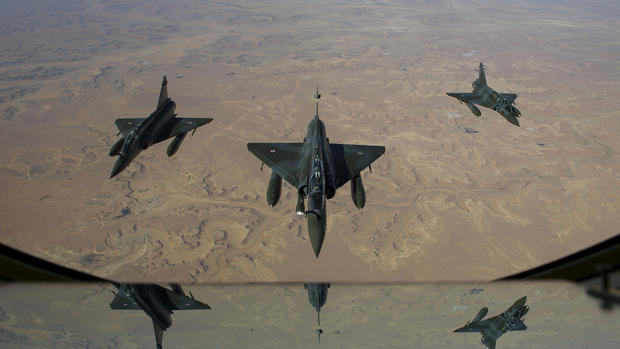U.S. begins transporting French troops to Mali
SEGOU, Mali American planes transported French troops and equipment to Mali, a U.S. military spokesman said Tuesday, as Malian and French forces pushed into the Islamist-held north.
Douentza had been held by Islamist rebels for four months, located 190 kilometers (120 miles) northeast from Mopti, the previous line-of-control held by the Malian military in Mali's narrow central belt. The Islamist fighters have controlled the vast desert stretches of northern Mali, with the weak government clinging to the south, since a military coup in the capital in March unleashed chaos.
French and Malian troops arrived in Douentza Monday to find that the Islamists had retreated from the town, said a resident, Sali Maiga.
"The Malian military and the French army spent their first night and the people are very happy," Maiga said Tuesday.
A curfew went into effect at 8 p.m., and there no gunfire or other incidents were reported overnight, he said.
In September, a convoy of pickup trucks carrying bearded men entered Douentza, and in the months that followed the Islamist extremists forced women to wear veils and enlisted children as young as 12 as soldiers in training.
French and Malian forces also took Diabaly, which lies about 196 kilometers (121 miles) west of Mopti, on Monday after Islamist fighters who had seized it a week earlier fled amid French air strikes.
- French airstrikes jolt Islamists in Mali
- Expert: Islamists "taunting" U.S. in Algeria, Mali
- U.S. increasing involvement in Mali conflict
- French troops go after Mali militants on ground
- Terrorists, guns, and cocaine: Why Northern Mali matters
The presence of Malian soldiers in the two towns marks tangible accomplishments for the French-led mission, which began on Jan. 11 after the rebels pushed south and threatened the capital, Bamako. But there are grave doubts that the Malian army will be able to hold newly recovered territory without foreign support. The coup disrupted the chain of command and Malian soldiers last year repeatedly gave up towns to the insurgents while putting up little, or no, fight.
Tom Saunders, a spokesman for U.S. military's Africa Command based in Stuttgart, Germany said U.S. Air Force C-17 transport planes had begun flights from the French base in Istres, France, to Bamako. Two flights arrived in Bamako on Monday and a third arrived Tuesday morning, he said.
"The missions will operate over the next several days," he said, but would not give any details on how many more flights were envisioned, citing operational security.
Col. Thierry Burkhard, a French military spokesman, said selective air strikes were continuing against suspected rebel targets. He said the radical Islamist fighters have been trying to disperse in light of the French bombardments, and as such had become "less dangerous" than before.
In recent days, French fighter jets and helicopter gunships have conducted about a dozen sorties per day. France has about 3,150 troops now involved in the operation code-named Operation Serval in Mali, all but 1,000 of whom are currently deployed in the former French colony.
France said Monday there are now about 1,000 African troops in Mali to take part in the military intervention from Nigeria, Togo, Benin, Niger and Chad.
France hopes that West African soldiers will take the lead alongside Malian troops in securing the country.
Neighboring African countries are ultimately expected to contribute around 3,000 troops but concerns about the mission have delayed some from sending their promised troops.
